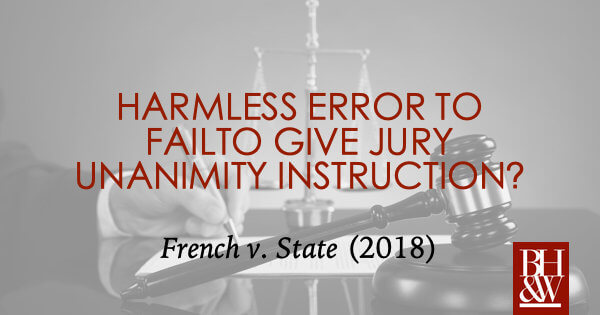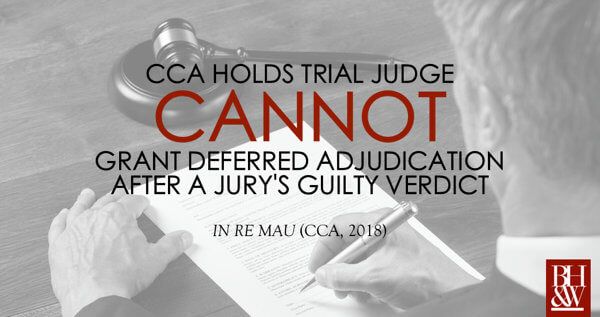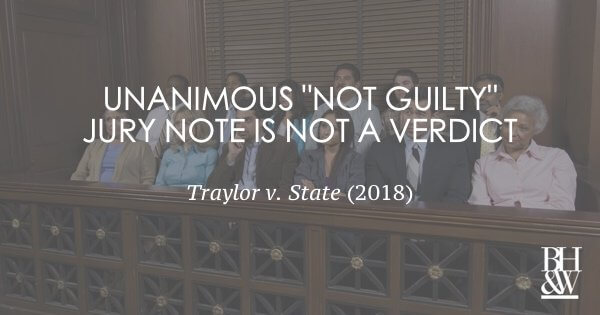Jury Instruction on Failure of Family to Testify During Sentencing
 After the defendant was convicted in the case of Lucio v. State, and the case proceeded to the punishment phase, the jury noticed something conspicuous about the defense case…nobody from the defendant’s family came to the witness stand to testify on his behalf. No poor momma with tears in her eyes. No sister or brother to testify about what a good person the defendant is at heart. Nothing. Just crickets. Curious about why nobody from the defendant’s family testified, the jury sent a question in to the trial judge while they were deliberating on the sentence:
After the defendant was convicted in the case of Lucio v. State, and the case proceeded to the punishment phase, the jury noticed something conspicuous about the defense case…nobody from the defendant’s family came to the witness stand to testify on his behalf. No poor momma with tears in her eyes. No sister or brother to testify about what a good person the defendant is at heart. Nothing. Just crickets. Curious about why nobody from the defendant’s family testified, the jury sent a question in to the trial judge while they were deliberating on the sentence:
Does the law prevent a family member from speaking during the sentencing phase, for the defendant?
Over defense counsel objection, the trial court provided the following response to the jury:
The law does not prohibit a family member from testifying on behalf of a defendant so long as the witness has relevant evidence related to an issue in the case. You have heard all of the witnesses who have been called to testify. Please continue your deliberations.
Of course, there were two inferences that the jury could reasonably draw from the instruction: (1) none of the available family members could provide relevant information, or (2) the defendant did not want to call any family members because they would not provide favorable testimony.
On appeal, the defense argued that the trial court’s instruction was an improper comment on the evidence. The 2nd District Court of Appeals (Fort Worth) disagreed and the Texas Court of Criminal Appeals granted discretionary review to settle the issue. Here’s what the CCA held:
We conclude that the general rule that prohibits the court from singling out a particular piece of evidence in its instructions to the jury given prior the jury deliberations does not necessarily apply when the court merely responds to the jury’s question concerning a subject identified by the jury.
The court noted that the court’s instruction was a correct statement of the law that did not improperly convey a “personal estimation of the strength or credibility” of evidence. The CCA affirmed the court of appeals.
Judge Meyers dissented, opining that:
the trial court’s instructions indicate to the jury that it is permissible to focus on the fact that the defendant’s family did not testify at punishment. In doing so, the judge expressed an opinion as to the weight of the evidence…










